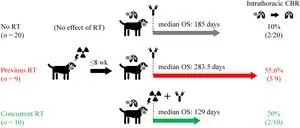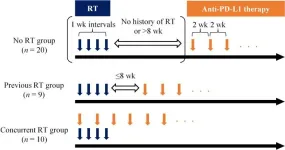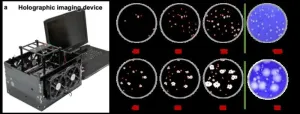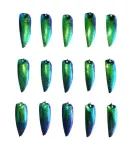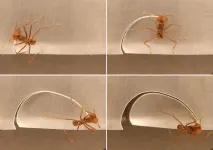(Press-News.org) Complications after cosmetic breast augmentation are more common than other cosmetic plastic surgery yet many women who undergo such procedures are often in the dark about the associated risks say QUT researchers.
The authors of a new paper argue the need for more disclosure early (and in much simpler terms) of those risks and the high likelihood of revision surgery being required so when women give their consent, they have a greater understanding of what may happen.
“The Australian cosmetic surgery industry is worth billions but there are concerns inside the industry on potential issues surrounding whether patients are being fully informed,” said Dr Stephen Whyte, lead author, behavioural economist, Senior Research Fellow and Deputy Director of QUT’s Centre for Behavioural Economics, Society and Technology (BEST Centre).
“Research indicates that close to one in five women believe their pre-operative expectations did not match the experience and post-operative results.”
The paper, Factors impacting informed consent in cosmetic breast augmentation, published in The Breast, is co-authored by Associate Professor Laura Bray, Martin Brumpton, Dr Ben (Ho Fai) Chan, Dr Timothy S Peltz (UNSW), Manisha Tamar, Professor Uwe Dulleck, and Distinguished Professor Dietmar W Hutmacher
The researchers conducted a randomised video-recorded experiment with 178 women aged 18-40 engaged in a hypothetical ‘first consultation’ with two actual Australian-based, experienced breast surgeons.
Questions asked of the participants included their age, height and weight, perception of their breast size, marital status, education level and whether they had children. Researchers also measured their socio-sexual orientation using the socio-sexual orientation inventory, a self-reported survey scale used to measure individual differences in sexual liberalism.
They found women who consider themselves healthier, are in some form of committed relationship, emotionally stable, and with higher levels of education are more inclined to understand the risks associated with cosmetic breast augmentation and less likely to undertake or recommend it to a friend.
Minor risks from breast augmentation can include bleeding during or after surgery, infection, interference with future mammograms, fluid collection around the implant, and a change in nipple and breast sensation. Higher risks can include rupture and deflation of the implant, capsular contracture, and secondary surgery with new often large direct financial costs.
“For patients who undergo breast augmentation surgery at a relatively young age such as in their mid-20s, the likelihood of revision surgery over their lifetime is close to 100 per cent,” Dr Whyte said.
“There is a growing consensus amongst plastic surgeons that during the consent phases of patient/doctor consultation, there exists a potential issue surrounding whether patients are being fully informed about the short-term and long-term risks, be it medical or financial.
“There are strict legal documents that explicitly point out all potential risks, but these documents can be vague, complicated, or insufficient in explicitly illustrating the likelihood of such events occurring for potential patients. So potential patients may be irrationally attaching very small probabilities to negative surgical outcomes.
“Some of the documentation is difficult even for medically trained experts to interpret and communicate. Our findings highlight a need for clearer pre-operative disclosure and consent forms composed in simpler language.
“Previous studies have suggested that consent forms be written to only a Year 6 level of language because patients may not understand or would likely forget much of the information disclosed to them by their medical expert.”
The full paper is available online: Factors impacting informed consent in cosmetic breast augmentation
Media contact:
Amanda Weaver, QUT Media, 07 3138 3151, amanda.weaver@qut.edu.au
After hours: 0407 585 901, media@qut.edu.au
END
More exposure needed for cosmetic breast enhancement risks
Cosmetic breast surgery almost always leads to revision surgery but women don't always know that when they give consent
2023-06-23
ELSE PRESS RELEASES FROM THIS DATE:
Combination therapy effective against canine melanoma
2023-06-23
A combination of radiotherapy followed by immunotherapy is a promising strategy for the treatment of oral malignant melanomas in dogs.
Melanomas are the most common oral cancers in dogs. It is highly metastatic and conventional chemotherapy does not increase survival time. Canine oral melanomas are similar to human melanomas; thus, research is being conducted into adapting treatments developed for human melanomas for dogs.
A particularly effective therapy for treating human melanomas is a combination of immune checkpoint inhibitors and radiotherapy. A team of researchers led by Professor Satoru Konnai at Hokkaido University has investigated ...
Building the semiconductor workforce of the future
2023-06-23
The University of Utah is one of thirteen founding partner members of the Northwest University Semiconductor Network, a partnership with and created by Micron Technology, Inc. whose goal is to help develop the next generation of the United States’ semiconductor industry’s workforce.
Micron, one of the world’s largest semiconductor companies, made the announcement on Monday. In a press release the company stated the Northwest University Semiconductor Network will “drive foundational and emerging research to increase students’ ...
New rapid viral plaque detection system, aided by deep learning and holographic imaging, can help accelerate vaccine and drug development
2023-06-23
Findings
In a new paper published in Nature Biomedical Engineering, a team of scientists led by Professor Aydogan Ozcan from the Electrical and Computer Engineering Department at UCLA and an associate director of the California NanoSystems Institute, developed a rapid, stain-free, and automated viral plaque detection system enabled by holography and deep learning. This system incorporates a cost-effective and high-throughput holographic imaging device that continuously monitors the unstained virus-infected cells during their incubation process. At each imaging cycle, these ...
New ruling on care of dying will force some to live life “of machine-related suffering”
2023-06-23
The newly revised ruling on advance medical directives and withholding/withdrawing medical support for the dying in India will inevitably force some terminally ill patients to “live a life of machine-related suffering” and deprive them of their autonomy and dignity in death, suggest specialist doctors in a letter published online in the journal BMJ Supportive & Palliative Care.
While a progressive step, the 2023 ruling still has important shortcomings, they add.
In the absence of any specific legislation ...
Global diabetes cases to soar from 529 million to 1.3 billion by 2050
2023-06-23
***Embargo: 23.30 UK time / 18:30 ET / 15:30 PT Thursday, 22 June 2023***
SEATTLE, Wash. June 22, 2023 – More than half a billion people are living with diabetes worldwide, affecting men, women, and children of all ages in every country, and that number is projected to more than double to 1.3 billion people in the next 30 years, with every country seeing an increase, as published today in The Lancet.
The latest and most comprehensive calculations show the current global prevalence rate is 6.1%, making diabetes one of the top 10 leading causes of death and disability. At the super-region level, the ...
Surrey expert recognized on International Women in Engineering Day
2023-06-23
The Women’s Engineering Society has named the University of Surrey’s Dr Kelly Kousi as one of the finalists in its Top 50 Women in Engineering Awards (WE50) 2023: Safety and Security. The announcement coincides with International Women in Engineering Day 2023, a celebration of women in engineering.
Dr Kousi, a lecturer in the School of Chemistry and Chemical Engineering, leads a research group of scientists and engineers who work on emission control, synthetic fuel production ...
Gloss is less effective camouflage in beetles compared to matte, according to latest study
2023-06-23
When combined with iridescent colouration, a matt target surface appearance confers greater survival benefits in beetles than a glossy surface, scientists at the University of Bristol have found.
The findings, published in Behavioural Ecology, suggest that iridescence provides camouflage independent of glossiness, which means that it is the colour of iridescent surfaces and its changeability, that is the most important aspect of iridescence in enabling camouflage.
Iridescence is a type of structural colouration that produces bright, vibrant hues. These are often angle-dependent, meaning the observed colour appears to ...
UW–Madison researchers reveal how key protein might help influenza A infect its hosts
2023-06-23
Influenza A is one of two influenza viruses that fuel costly annual flu seasons and is a near constant threat to humans and many other animals. It's also responsible for occasional pandemics that, like the one in 1918, leave millions dead and wreak havoc on health systems and wider society.
Influenza A was first identified as a health threat nearly a century ago, but only in the last decade have scientists identified one of the virus’s key proteins for infiltrating host cells and short-circuiting their defenses. Now, a team of researchers at the University of Wisconsin–Madison have taken a major step toward ...
CU professor leads study on discontinuing therapy for MS patients over 55
2023-06-23
AURORA, Colo. (June 22, 2023) – An article published today in the journal Lancet Neurology evaluates the risk of recurrence of active disease in older patients with multiple sclerosis after discontinuing disease-modifying therapies.
Multiple sclerosis (MS) is a chronic illness, often presenting in young adulthood. Most commonly, at onset, individuals have acute attacks, or relapses, of intermittent new neurological symptoms such as vision changes, numbness, and weakness that may come and go, seemingly randomly, and then remit completely or incompletely. ...
Mystery of how leaf-cutting ants gauge leaf portion size revealed
2023-06-23
They might not be able to leap tall buildings with a single bound, but leaf-cutting ants are insect superheroes, capable of carrying leaf pieces up to six times their body mass to cultivate fungus in their borrows. But how do the charismatic creatures determine the size of the fragments they carve with their mandibles? Do they use their bodies as a simple ruler, or do they use information about the position of their bodies to adjust how far they cut, adapting to the thickness of a leaf while dismembering it? Knowing that the insects alter the trajectory of a cut when sculpting ®Parafilm of different thicknesses, Flavio ...
LAST 30 PRESS RELEASES:
Novel camel antimicrobial peptides show promise against drug-resistant bacteria
Scientists discover why we know when to stop scratching an itch
A hidden reason inner ear cells die – and what it means for preventing hearing loss
Researchers discover how tuberculosis bacteria use a “stealth” mechanism to evade the immune system
New microscopy technique lets scientists see cells in unprecedented detail and color
Sometimes less is more: Scientists rethink how to pack medicine into tiny delivery capsules
Scientists build low-cost microscope to study living cells in zero gravity
The Biophysical Journal names Denis V. Titov the 2025 Paper of the Year-Early Career Investigator awardee
Scientists show how your body senses cold—and why menthol feels cool
Scientists deliver new molecule for getting DNA into cells
Study reveals insights about brain regions linked to OCD, informing potential treatments
Does ocean saltiness influence El Niño?
2026 Young Investigators: ONR celebrates new talent tackling warfighter challenges
Genetics help explain who gets the ‘telltale tingle’ from music, art and literature
Many Americans misunderstand medical aid in dying laws
Researchers publish landmark infectious disease study in ‘Science’
New NSF award supports innovative role-playing game approach to strengthening research security in academia
Kumar named to ACMA Emerging Leaders Program for 2026
AI language models could transform aquatic environmental risk assessment
New isotope tools reveal hidden pathways reshaping the global nitrogen cycle
Study reveals how antibiotic structure controls removal from water using biochar
Why chronic pain lasts longer in women: Immune cells offer clues
Toxic exposure creates epigenetic disease risk over 20 generations
More time spent on social media linked to steroid use intentions among boys and men
New study suggests a “kick it while it’s down” approach to cancer treatment could improve cure rates
Milken Institute, Ann Theodore Foundation launch new grant to support clinical trial for potential sarcoidosis treatment
New strategies boost effectiveness of CAR-NK therapy against cancer
Study: Adolescent cannabis use linked to doubling risk of psychotic and bipolar disorders
Invisible harms: drug-related deaths spike after hurricanes and tropical storms
Adolescent cannabis use and risk of psychotic, bipolar, depressive, and anxiety disorders
[Press-News.org] More exposure needed for cosmetic breast enhancement risksCosmetic breast surgery almost always leads to revision surgery but women don't always know that when they give consent

